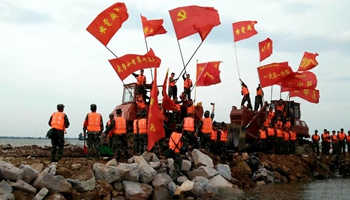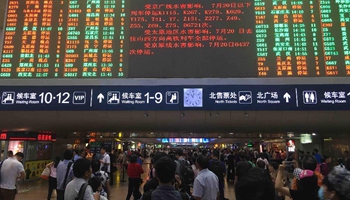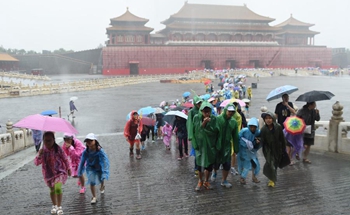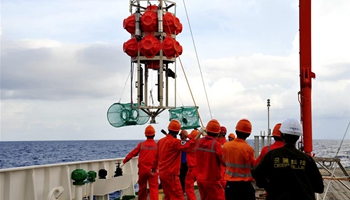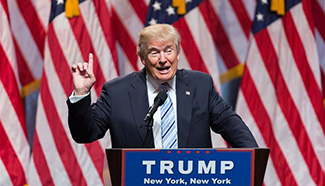BEIJING, July 20 (Xinhua) -- European Union (EU) lawmakers should grant China market economy status (MES) as the excuses put forward to choose otherwise are untenable.
The European Commission is set to debate its stance on China's market economy status on Wednesday, the latest move after a non-binding vote in May rejected the loosening of trade defenses.
The EU Parliament said in a resolution in May that China's excess production capacity and cheap exports are hurting EU employment, urging that China not be granted MES.
Facts speak louder than words, however, and, taking the much debated steel industry as an example, China's steel exports to the EU are small compared with other countries and its low value-added steel products are complementary to the EU's steel market portfolio.
Trade with China is by no means a zero-sum game. Without exports from China, the EU would still have to import similar products from other countries. That will not stem job losses in the EU.
Instead, China created 12,000 local jobs in Europe in 2014 as its investment projects in the region rose 40 percent year on year to 210 in total, according to a survey made by Ernst & Young in 2015, noting that it did not include mergers and acquisitions (M&A) in its survey.
Trade with China is key to helping the embattled EU recover from the financial crisis and a debt crisis, especially as the EU has problems enough of its own making. Excessive regulation has stifled any enthusiasm for European innovation and investment.
China is the EU's second-largest trading partner, with daily bilateral trade exceeding 1 billion euros (1.13 billion U.S. dollars).
Cooperation benefits both sides, while contradiction hurts. Clearly, MES for China would help the EU attract investment and find new business as China's industrial landscape transforms.
Besides, according to the international rule, the protocols for China's accession to the World Trade Organization (WTO) in 2001 dictate that China will automatically switch over to market economy status when the Surrogate Country approach expires on Dec. 11, 2016. By then, the legal foundation for treating China as a non-market economy is gone.
When the Surrogate Country approach is in effect, a third country or region's prices can be used to assess if a certain country is exporting below market value or dumping.
Failing to grant China the MES may facilitate the EU to arbitrarily impose anti-dumping measures, given the bloc already has a track record of turning to protectionist measures against Chinese products. Among 73 anti-dumping measures that the EU is currently employing, 56 apply to imports from China.
But EU policy makers should understand that China neither caused nor can solve the problem of declining EU competitiveness. European lawmakers' bias is nothing more than the heavy hand of trade protectionism squeezing the world economy.
China's exports to the European Union dropped 4.4 percent year on year in the first six months, Vice Commerce Minister Gao Yan said at a news conference on Tuesday.
China advocates free, fair and open trade and has done a lot to free up the market at home. The rise of the world's second-largest economy benefits from its support for fair competition and reduction of administrative barriers.
A case in point is that the Chinese government has decided to further ease investment rules in four free trade zones, temporarily allowing foreign investors to found wholly-owned enterprises in a number of fields,including iron and steel production and gas station operations, a central government statement said on Tuesday.
Either by law or by facts, it should not be difficult for EU policymakers to make the right decision -- to grant China the MES.

